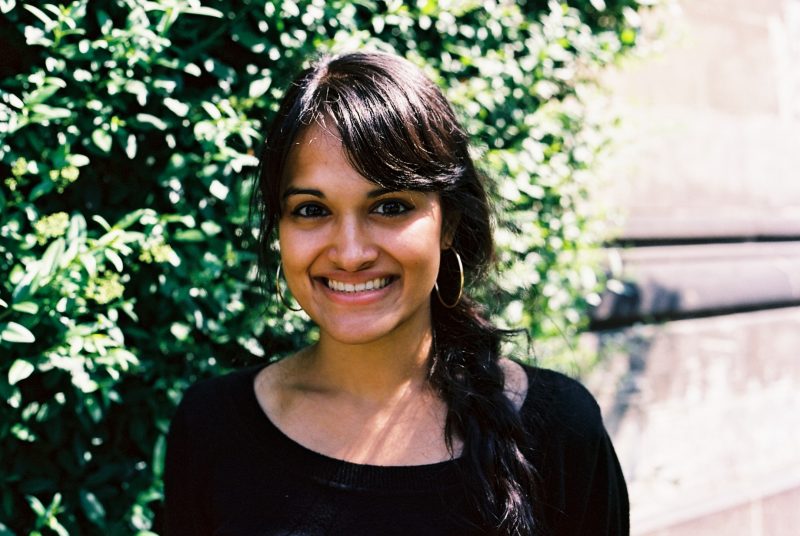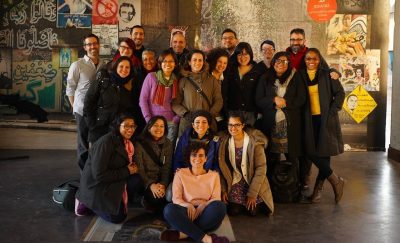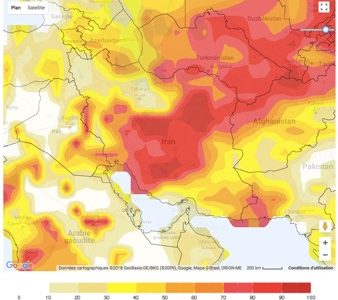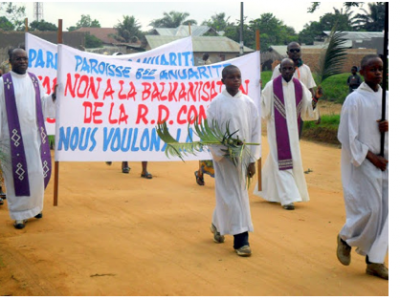
Photo credit: Fiona Krakenbürger
About me
I am a writer, researcher and feminist with roots in the UK, Bangladesh and Germany. I have travelled and worked in over 30 countries, and I speak 4 languages fluently (and another two a little less fluently!). The piece I’m most proud of writing recently is this, on how immigration across generations has been affected by communication technologies.
Most of my work has centred around studying and working on social change and technology – through campaigning for access to information laws or accessibility of public data; working on data literacy among civil society and journalists; and lately as a researcher focusing on ethical and responsible data issues in social change. Put simply, I’m fascinated by the intersection of power structures, technology and information.
GV and Me
My first post for GV was in 2015, but I followed avidly online (and, I’ll admit, lurked on the mailing lists) for a long while before that. It's testament to the welcoming nature of the GV Community that I feel so at home here in such a short time.
I started writing because the pieces I wanted to read didn’t exist: specifically, analysing how political changes in Bangladesh were being combined with the government's use of technology to control protests. I'm incredibly grateful that GV provided that platform for me. Since then, I’ve focused mostly on writing for Advox about digital rights issues in Bangladesh.

With the fantastic participants at the GVeX workshop in 2016
Last year, I was part of the incredibly inspiring Global Voices Exchange workshop, where I learned a lot, and the conversations I had there have guided my work since. With Georgia’s guidance, I’ve also published a few more personal essays on The Bridge, too. Since joining, I’ve had the opportunity to meet GVers in many different countries, and I love the instant bond that comes with meeting a fellow GVer in person.
I’ve been following the NewsFrames initiative since it began, and I hosted a workshop for Connie early on in the project to help think about how it might develop. I think there’s a lot of potential for GV in collaborating with other media initiatives who don’t have the same diverse community that we do.
Being Volunteers’ Representative
In my professional work, I spend a lot of time thinking about information, power and trust – and how that affects society. In my mind, Global Voices plays an incredibly unique role that intersects with all of those that will only become more valuable. As I wrote last December, I believe that in addition to innovation, journalism needs trusted communities such as GV. I wrote more there about the many strengths that I believe Global Voices has developed, and the reasons I believe GV is more important now than ever.
Moving forward at a time of high political turmoil globally, increased migration, and a decrease in trust in political institutions, I’m interested in leveraging our diverse network to understand how Global Voices can help fight the negative changes we’re seeing in the world. What change do we want Global Voices to make in the world? What do we need to get there?
I love the current model of seeking feedback from the community in advance of GV strategy meetings, and I wonder how else we can make the most of our community in a respectful and sensitive way. As Volunteers’ Representative, I imagine that lots of my role would be to listen to the suggestions and challenges being faced by our wonderfully diverse community, synthesise these and present them to the rest of the board in an actionable and useful way, and I believe my professional experience will stand me in good stead for this role.
There’s no denying that the current media landscape is tough right now. Ad-centered business models have affected form and content of journalistic outputs, and one of the few ways forward that I can see is in non-profit journalistic models, such as Global Voices. I have the privilege of working closely with many people who are thinking a lot about and working on solutions to those problems, and I can’t remember how many times over the past few years I’ve pointed at the incredible combination of the Global Voices online body of work and offline community as an example of best practices for others.
In addition to this, I’d like to use the position as Volunteers’ Representative to make sure that volunteers have a friendly person to talk to, a place to share concerns and challenges that you’re facing, and someone to bounce ideas off and think about how GV might help address those concerns.
Finally, and probably most importantly, I want to say that it’s an incredible honour just to be nominated as a Volunteers’ Representative candidate for the latest round of board elections. The slate of candidates is awe-inspiring. I would truly be happy to be represented by any of them, and if elected, I would try my best to do justice to that high standard.
If you'd like to talk more about any of this, get in touch! I'm on Twitter @zararah, or send me an email!




12 comments
Beautiful post, Zara! Good luck! :)
<3 thank you, you too!!!
Such a pleasure to know more about you, Zara!
Best of luck!
Thank you Rawan!! Lots of good luck to you, too!
Good luck, Zara.
Thank you, Aparna! I appreciate it :-)
Hi Zara – here is a question that I’m posing to all of the candidates, as a way to encourage discussion during the last couple of days of campaigning:
1.) If you are elected board member, what would be the most critical challenge facing Global Voices that you would make your top priority to help address over the next three years? And why do you feel like addressing this challenge is especially important for our community?
Great question, Eddie! I think one of the most critical challenges facing Global Voices is that of sustainability, both in terms of financial resources, and community sustainability.
We have an incredibly diverse and imaginative community. I imagine that GV has a number of challenges in finding funding, setting up new programmes and providing resources for existing programmes to help them be healthy and useful – and I believe that the collective resources and imaginations of our community could help face these better together.
Sustaining healthy communities such as GV’s takes work, and the core GV staff already do a truly fantastic job. Maintaining that, and perhaps even reaching new areas, new languages, covering even more important topics, will take financial resources – that’s why I believe it’s a crucial challenge for all of us to think about. At the same time, as I wrote above, we’re operating in a difficult media landscape, one where trust is low and resources are low. We need to come up with creative ways to help rebuild that trust beyond our own community and into others that are struggling, and figure out what resources we need in order to do so.
I believe our diversity is one of our key strengths, and being able to benefit from so many experiences and perspectives from our community members will be key to being able to grow and thrive in the years to come. With our collective intelligence and our diverse sets of knowledge, I have no doubt that we’ll face whatever challenge comes our way with the strength and grace that we always have!
Thanks, Zara. I appreciate your answers to my questions.
Hi Zara,
Thanks for this super informative post! I would love to hear if you have more thoughts on how Global Voices can scale ‘trust’ outside our community to our audiences, given how ‘suspect’ the media environment has become? This is something I think of often, but haven’t made much progress in seeing possible solutions to test, beyond the need for more transparency and literacy around of who we are individually and how we work internally.
Any thoughts are welcome, thank you!
Best,
Sahar
Hi Sahar! Great question, and one I think about a lot too.
I think one of the biggest strengths of GV right now is credibility and trust, and lots of that has to do with in-person relationships and, in a way, incentives. For example – nobody writes on GV simply for getting eyes on an article (ie. clickbait) or for advertising dollars. I’m not sure how much readers understand that about us though, or how they perceive our model – do they know that we’re non-profit, for example? If they do, I can see why readers would trust what is on the site, understanding that we have no incentive to provide misinformation or exaggerate.
I think our combination of online and offline communities could be a great help here– for example, if I see something on GV, I trust it because I know the GV community (from in-person and online interactions). I then post it to my social networks, and those in my networks trust it because it comes from me. But scaling this, of course, is hard!
I know we already have some cross-posting arrangements with other media outlets, but I wonder if we could extend those or establish more such agreements in order to provide trustworthy content to other outlets (for example, more local/small media outlets), which would also hopefully bring more people back to GV and start building credibility with new audiences. Or, could we try explicitly to bring in more local bloggers who themselves have credibility among their own networks?
Ultimately though, this is a hard problem! I’d love to find useful ways for the community to be able to feed in suggestions and ideas for how to approach this problem (and others!), as I imagine there are a lot of great ideas out there among us :-) I’d love to hear if you have other ideas on your mind too, Sahar!
Best,
Zara
I think you capture the magical, behind-the-scenes trust mechanism, which rules our current media landscape, well! I agree that we, at GV, need to up our branding (or transparency) around the personal relationships and individual trust that binds our community. It’s tricky though, in our current media environment trust has become persona-driven, which is an anathema to many members of our community. Mostly, I think we need to find a fine balance between building trust, safeguarding privacy, and staying true to our open culture, and find a way to easily communicate the end result to our audiences. Tall order! One idea that has been bouncing around in my head is building a tool on our stories that captures how many degrees of digital separation an audience member has from a GV author. Sort of like how a Facebook share counter will tell you which ones of your friends have shared something, I know those kinds of connections build trust for me. But how do we do that without triggering multiple privacy concerns and how do we break echo chambers if we rely on that kind of one-on-one trust?